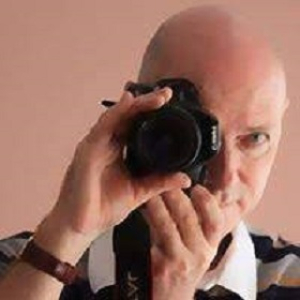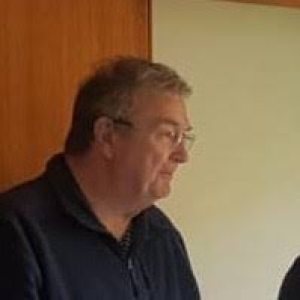Peter MALONE
Our award-winning photographer, John Walker MSC, this time in Tel Aviv
Our award-winning photographer, John Walker MSC, this time in Tel Aviv
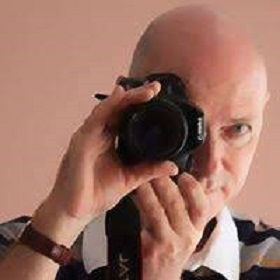
John writes; Tel Aviv, Israel, also known as the White City, was designated a UNESCO World Heritage Site in 2003, comprising Bauhaus and modernist architectural styles.

A sampling of his Tel Aviv photos.

I spent a few days in TA at the end of my sabbatical in 2012.

Shapes, angles, human figures.

I visited the stunning Museum of Art

and was fascinated by the minimalist angularity of its architectural features.

John’s photography shows how a hobby can become an art.

Some of these images have just entered an international photographic competition where I regularly participate.

Kiki
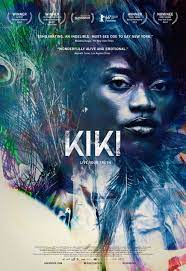
KIKI
US, 2016, 94 minutes, Colour.
Twiggy Pucci Garcon.
Directed by Sara Jordeno.
Drawing on the Wikipedia article on Kiki.
Kiki is an American-Swedish co-produced documentary film, released in 2016. It takes place in New York City, and focuses on the "drag and voguing scene (deriving from Madonna and her song Vogue ("Voguing"—an exaggerated dance style started in the underground ballroom scene in Harlem) surveying the lives of LGBT youth of color at a time when Black Lives Matter and trans rights are making front-page headlines".The film was directed by Sara Jordenö and considered an unofficial sequel to the influential 1990 film Paris Is Burning,]the film profiles several young LGBT people of colour participating in contemporary LGBT African American ball culture.
Jordenö was invited to create the film by Twiggy Pucci Garçon, a leader in the kiki community in New York. She cowrote the film with them. Jordenö was able to film her subjects over the course of several years. She was able to follow two of the film's subjects Gia Marie Love and Izana Vidal as they went through their own transitions as trans women.
The drag and ball scene are venues in which many queer and transgender people of color can find community as well as express themselves. Kiki is more intertwined with activism and education as it focuses more on people between the ages of 13 and 24 instead of older queer and transgender individuals.
“While there are similarities in many of their stories, each journey is different. Many of the young adults profiled have been kicked out of the house for being trans, queer, or just gender-nonconforming. They have gravitated towards one another, and immersed themselves in a culture that is nonjudgmental, open, and caring. They take care of each other. They crash on each other's couches. They have each other's collective backs.” Sheila O’Malley, Rogerebert reviews.)
The issues that transgender youth of color face include the struggle that many transgender people of color faced was trying to start and continue their hormone replacement therapy as well as sex work.
Kiki also depicts what it is like for LGBT youth of color to experience discrimination. When it comes to the LGBT neighborhoods, there is some mention of police officers that patrol the neighborhood engaging in homophobia. As a result of the discrimination that they face from society, many have to navigate taking part in sex work as a means to support themselves.
This is also where the ballroom and drag scenes come into play as many of these youths use these avenues to claim space that otherwise would be denied to them. Kiki is a film that is glamorous, but also educates its audience and depicts the very serious realities that many LGBT youth face.
HIV/AIDS activism is so important to them and the kiki scene. There is a strong focus on community education within the film to help show the youth that this tight knit community cares for them and wants to keep them safe. The film discusses how education and activism can be difficult considering all of the negative stigma around being LGBT identified, black, young, and HIV positive. Gia Marie Love, who identifies as trans, also explains how there is a lack of focus on HIV and STI prevention among the trans community.
Nut Farm, The
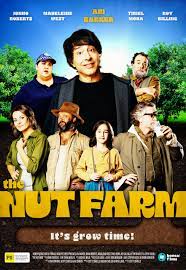
THE NUT FARM
Australia, 2023, 91 minutes, Colour.
Arj Barker, Jonno Roberts, Madeleine West, Tiriel Mora, Roy Billing, Gyton Grantley, Steph Tisdell, Annie Byron, Dave Eastgate, JJ Pantano, Danny Faifai, Tracy Lee Maxwell, Brad McMurray.
Directed by Scott Corfield.
Intentionally, the title seems to be indicating some kind of mental establishment. While there are some quite strange goings-on, an absurd character or two, or three, the title actually refers to a property in the remote small Australian town of Cobweb, a macadamia farm.
This is a small Australian film, often tongue in cheek, happy to send up American innocents abroad, a jibe or three at some New Zealanders, and a range of local characters who populate Australian television series, especially the comedies
Our central character is an American, Brendan Brandon, played by comedian Arj Barker, who seems to be a cryptocurrency expert in San Francisco, giving self-satisfied speeches to admiring crowds, but then falling on hard times. We have already seen an old man seemingly prospecting, finding a manhole and going down – and disappearing. He is Mitch and his friend, Harry, phones Brendan to say he has inherited Mitch’s macadamia farm. What on earth does Brendan know about farms or macadamias? Answer, of course, nothing.
Brendan flies to Australia, picked up from the plane by Esme who runs the local pub (incorporating all shops, the diner, the bar…), Looking for all the world like a Dame Edna caricature. Harry is played by Tiriel Mora in his very sad sack style. There are various characters in the town, including old Dazza who spends time at the bar, Sgt Blake, who has all kinds of jobs in Cobweb from policing to delivering the mail (and enjoyable performance from Steph Tisdale), the enterprising Farmer Dee who tells of an avocado farmer who has disappeared. He helps Brendan with the macadamia trees and cultivation – and then disappears.
What is Brendan to make of all of this? Especially when Harry tells him that he has to produce 20,000 tons of macadamia nuts to finally inherit!
Meanwhile, we look below the surface, a fracking enterprise which disturbs the locals and has disturbed Mitch. In the tunnels there is a mad scientist, Zoran (New Zealand actor Jonno Roberts), with a very efficient, office -like assistant and two miners digging in the trenches). It is finally revealed what Zoran is up to – an attempt to assist New Zealand economy!
Since this is also a light comedy, there had better be a bit of romance. There is the enterprising farmer, Kim, who is attracted to Brendan (some of the audience perhaps not entirely sure why), and her rather precocious young son.
When Brendan fails by a couple of kilos to meet his quota, he goes prospecting and uncovers Zoran’s mad enterprise.
And, happy ending, Brendan seeing sense, of course, and staying in Australia with Kim and her son and the macadamia nuts – and all the new friends in Cobweb!
- The title? Literal macadamia nuts? The overtones of nutty – nutty comedy?
- The opening in San Francisco, the world of crypto currency, speeches and customers? The contrast with Australia, the town of Cobweb, the farm, the landscapes, the tunnel? The Australian feel? The sending up of Americans? The musical score?
- Mitch, old man, seeming to be prospecting, the search, his disappearance down the hall? Bequeathing his farm who Brendan? The others disappearing, the avocado farmer, later Farmer D?
- The audience seeing the sore arm, his assistant, the miners, his manic behaviour, going to the shop, Has a as a spy, theatrical? His aim, gas for New Zealand? The issue of fracking?
- Brendan, age, character, success, his well collapsing, the phone call from Australia, his arrival, landing, the small town, airport, is made turning up, looking like Dame Edna Everage?
- Harry, friendship with Mitch, the phone call to Brendan, meeting him, the farm, the property, the house? The claws of having to farm 20,000 tons of macadamia nuts?
- Sgt Blake, her variety of jobs, changing personality with each job? The irony of the bar, the various sections and the various shops, stores, eating places?
- Kim, hard work, her son, precocious, the attraction to Brendan, the possibility of a relationship?
- Brendan, the house, getting used to Australia, Farmer D and the information about the macadamia nuts, tending them, his work?
- Just falling short of the quota? The legal consequences?
- Brendan, exploring, finding the trapdoor, going down, discovering the captives?
- The buildup to the confrontation, the audience having seen the miners and their interactions with the locals, Zorro and his assistant, her efficiency? The technical know-how, the fracking? Leading to the explosion? Brendan, deciding to stay, the relationship with Kim, her son?
- A small piece of Australian owner?
Dune, Part 2
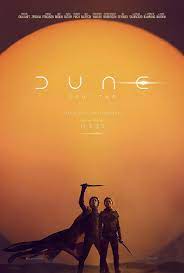
DUNE, PART 2
US, 2024, 166 minutes, Colour.
Timothee Chalamet, Zendaya, Rebecca Ferguson, Javier Bardem, Josh Brolin, Austin Butler, Florence Pugh, Dave Bautista, Christopher Walken, Lea Seydoux, Stellan Skarsgaard, Charlotte Rampling, Roger Yuan.
Directed by Denis Villeneuve.
Denis Villeneuve’s 2021 version of Dune made quite an impact. The Dune novels by Frank Herbert had been popular for decades. David Lynch had made a version in 1984 which was not favourably received (except by this reviewer!). So, in a sense, Villeneuve’s version was a vindication of the power of the novel, its characters, its imagination, its mythical vision of the future.
Now, here is Dune Part 2 – and, in its immediate release, it seems to have pleased almost everyone, quite a number of bloggers relying on the word “masterpiece”. Whether that be the case are not, the film is certainly visually impressive as was the original. And, this review is based on an IMAX screening, which is thoroughly recommended. The landscapes, the endless mounds of dunes, the craggy mountains, the canyons provide a vastly impressive setting. And, the musical score, the brass instruments and their resounding make the cinema seats reverberate.
And, with this kind of tale-telling, kingdoms, battles, futuristic weapons and armaments, vast buildings and interiors, including an enormous gladiator arena filmed in black and white, hundreds of thousands of spectators, there are what we might call state-of-the-art… Effects.
For those familiar with the novels and the films, there is no need to wonder about the House of Atreides, the fate of the ruler, his young son, Paul, his mother, Jessica, the conflict with the Emperor, the hostility towards the Harkonnens. Those not so familiar may have a lot of moments, especially in the battle sequences, as to who is who and why it is all happening at this moment.
As before, Timothee Chalamet is Paul, Rebecca Ferguson his mother, Zendaya is Chani.
In the first part of this this film, we focus on Paul and his mother, the bond with Chani from the previous episode, the hiding from enemies in the desert (who have enormous sky vehicles and have the power of levitation up the sides of mountains), then some combat with hostile locals. However, the local leader, Stilgar, Javier Bardem, welcomes the foreigners, and, with echoes of biblical/Islamic traditions, a reliance on prophecies and fulfilment, a hope for a Messiah. Stilgar puts Paul to the test.
Then we go back to the spice industry, the villain, Beast Rabban, Dave Bautista, his ruthlessness, but also his defeat, his return to his master, Baron Harkonnen, Stellan Skarsgaard, who is grooming his nephew, Austin Butler, whom he describes as psychotic, who combats three remnants of the House of Atreides.
There is further drama concerning Paul’s mother, her later discovery of who her father was and what that means in terms of Atreides versus Harkonnens, and her becoming the new Reverend Mother.
New characters in this film include Christopher Walken as the Emperor and Florence Pugh as his Princess daughter, who has been trained by the sinister Reverend Mother, Charlotte Rampling.
Which means that it all has to come to a head, the power of the Emperor, his plans, Paul as the new saviour, Battle confrontation mano a mano between Paul and the psychotic nephew.
While there is some resolution, the way is now open for a climax in Dune Part 3
- The long popularity of Frank Herbert books? 1984 version? The impact of Part 1?
- The continuation of the story, life on the planet, Arrakis, the house of Atreides and its destruction, the Harkonnens, the Emperor and his family, the setting in the 10,000s?
- The landscapes, the dunes in the desert, the mountains, canyons, the cities, the interiors, the vast buildings, the gladiatorial arena? The colour photography? Black-and-white photography for the Harkonnen world?
- Action sequences, the range of special effects, in the desert, the worms and movement, the winds, the aerial machines, the Army sequences and battles, the hand to hand final combat?
- The musical score, the instruments, the booming and reverberating sounds?
- The situation, the destruction of the House of Atreides, Paul surviving with his mother, the previous bond with Chani, hiding and the attacks in the desert, aerial surveillance, the ability of the soldiers to ascend and climb the mountain sides?
- Paul and his mother and Chani, brought to her people, the issue of the combat, the defeat of their warrior, the response of the crowds, the men, the sceptical women? The funeral?
- Stilgar, his status in the community, the Biblical/Islamic traditions of written words and prophecy, the hope of a saviour? The men and their beliefs, their prayer? The women critical including Chani? Stilgar and his personality, leadership, influence on the others, belief in Paul? Fulfilment of prophecy? The range of tests, the crossing of the dunes, Chani and her advice and help, the big test, going out into the dunes, the soundings, the worms emerging, giant, Paul and his abilities, the hooks, and riding the worms? Acclaim?
- The solemn place of the Reverend Mothers, Jessica, her bond with her son, chosen to be a Reverend Mother, the rituals, the old Mother and succession, the transfer of knowledge, the abstract colour visuals for these sequences? Her tattooed face? Her role with the women, knowledge and advice? Her wanting to go south, to return home, with Paul? His refusal? Seeing her off with the entourage?
- The episode with Beast Rabban, the initial caption about the power and the power with the spice? The spice industry, cause of conflict? The farming of the spice, collecting it, financial issues? The Beast and his autocratic behaviour, slitting the throats of his advisers? Falling foul of the Emperor, the aerial sequences, his defeat, having to kiss the feet of Fayd-Rautha?
- The tradition of the Harkonnens, the Baron, in the bath, his size, bloated? His relationship with the Emperor? Helping the Emperor to defeat the House of Atreides? His plans for his nephew? The description of the nephew as psychotic? Everybody with shaved heads? Preparations for the gladiatorial combat, the black-and-white photography, the visuals of the arena, the special effects for hundreds of thousands of spectators, the three final warriors from the House of Atriedes, the confrontation with Fayd-Rautha, the fights, his arrogance, the blood, the knives, the final foe giving him a fight? Arrogant Victor?
- The return of Gurney, the story in the past, smuggling? The friendship with Paul, their bonding? Chani and her suspicions? Gurney and his participation in the insurrection, present at the end?
- The scenes with the Emperor, his rule, under threat, his assertion? The scenes with his daughter, his hopes for her? The Reverend Mother, her manner, influence in the past, training the daughter, ambitious, controlling, her strategies, her ruthlessness?
- The buildup to the confrontation with the forces of the Emperor, Paul, the Fundamentalists from the south, the attack, the air vehicles and their destruction, on the ground, the firepower, the skills of the fighters and their disguise, rising from the sands? The visuals of the vast confrontations?
- The victory, the confrontation with the Emperor, Paul and his assertions, the killing of the Baron, revenge? The Emperor, defiant? Fayd-Rautha as his champion? Paul and his conditions, speaking of marrying the Emperor’s daughter, peace, Chani and her reaction?
- The Mano a Mano fight, strategies, techniques? Paul being wounded? Turning the tables on his opponent, his death? The Emperor, having to kneel before Paul?
- Stilgar, everybody rejoicing, Paul as the saviour? His mother and her response? The defeat of the Reverend Mother and the Emperor’s entourage?
- The ending, the openness to the reassertion of Paul Atreides and his leadership?
20 Days in Mariupol
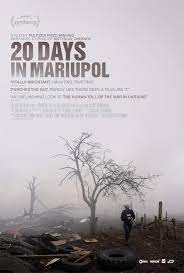
20 DAYS IN MARIUPOL
Ukraine, 2023, 95 minutes, Colour.
Directed by Mstyslav Chernov
A significant documentary for its time. And a significant documentary in future years for any assessment of Russia’s invasion of Ukraine in 2022 and its subsequent history.
This documentary has won several awards and is a nominee for the Academy Award for Best Documentary.
Mstyslav Chernov is a celebrated Ukrainian journalist, photojournalist, committed to peace causes. (It is worth checking his Wikipedia entry especially to see the number of awards, and their wide range, that he has received while still in his 30s, including the Pulitzer Prize.)
He was in the southern coast city of Mariupol on February 24th 2022 when Vladimir Putin made a press announcement (seen in this documentary) announcing a special operations in Ukraine, attributing aggression to Ukraine, Nazi attitudes. However, this was a follow-up to the invasion of Crimea in 2014 and its annexation and Russia’s territorial ambitions – with memories of interactions between Russia and Ukraine in previous centuries as well as Stalin’s treatment of Ukraine in the 1930s famine.
The director was reporting for Frontline, American PBS channel. This documentary, covering the almost 3 weeks that the director was in the city before leaving to take his footage to be available for the wider world, catching up with the Red Cross convoy, was edited into this feature documentary and released, screening at the Sundance Festival, a month before the first anniversary of the Russian invasion.
In Australia, the film, Oscar-nominated, became available just after the second anniversary of the invasion – and the uncertainties about the future of the conflict. While the language of the film is all about the present, those three weeks in 2022, audiences in 2023 watched it in the retrospect of one year of the war. With the second anniversary of the war, 2024, the war had lasted 730 days. So much warfare, so much Ukrainian spirited resistance, the leadership of President Zeleneky, assistance from Europe and NATO, from other allies including Australia, the ups and downs of financial and arms support from the United States.
So, audiences, including those influenced by the Oscar nomination, are watching the events two years later. Which, of course, in no way diminishes the horror, the violence, the atrocities, the sufferings and death, family bereavements, the pressures on doctors and nurses, bombardments, lack of resources, hunger… And the thousands who left the city.
And, for those watching the film in 2024, there is also the experience of making comparisons with the war in Gaza, the experience of the Palestinians from the Israeli invasion and bombardments following the Hamas brutal attack, the parallels of doctors and nurses, lack of means, the many deaths, injuries and the sadness of the bereaved, as Well Is the bewilderment of the survivors.
This is painful watching even for those comfortably observing from afar. This is a kind of necessary documentation that needs to be kept, seen, lest we forget. The director and his associates spent a lot of time in the hospitals, documenting the work of the doctors and nurses, the difficulties, and filming out in the streets, significantly the filming of pregnant women, the babies, the children, the deaths and the grief-stricken parents. The director trying to track down the pregnant woman in the bombed streets and finding she had died. The father mourning the death of his son, 16-year-old, playing soccer when the bombs fell.
The accusations against the Russians with the bombing and the arrival of the tanks and bombardments are strong, condemning the seemingly targeted attack on civilians – denied by the Russians, spokespersons on Russian television, officials at international meetings, as well as that unfortunate heritage from Donald Trump, “fake news”, the Russians insisting that so many of the scenes in those 20 days at Mariupoll were movie sets with actors performing.
That was in the first three weeks of the war. In the ensuing months and years, there have still been denials, but the evidence is clear, the importance of photojournalists, filmmakers, photographing and recording on the spot so that evidence is not lost but finds its place in asking for empathy from the world, but also providing material for judgement and condemnation.
Acknowledging Paul Cashen MSC, 80
Acknowledging Paul Cashen MSC, 80

Paul Cashen turns 80, February 24th. He is from Adelaide and has spent much of his ministry there in Hindmarsh and Henley Beach and at the Cathedral.
Paul made his profession on February 26th 1963, and was ordained on May 31st 1969.
 .
.
His ministry has been in parishes, as Rector of St Paul’s Seminary for Late Vocations, studies in Leuven, his thesis published by Nelen Yubu as FROM THE SACRED HEART TO THE HEART OF THE SACRED. The Spiritual Journey of Australian Catholic since the Second Vatican Council, Deputy Provincial.

He is at present in Adelaide. During 2023, he participated in a Sabbatical program in San Antonio, Texas.

With Sister Helen Armstrong OLSH
Autre Monde, Un/ Another World
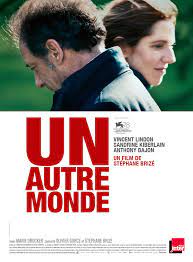
UN AUTRE MONDE/ ANOTHER WORLD
France, 2021, 96 minutes, Colour.
Vincent Lindon, Sandrine Kiberlain, Anthony Bajon, Marie Drucker, Jerry Hickey.
Directed by Stephane Brize.
If one were to recommend a film about capitalism, about industrialisation, downsizing, board meetings, and the effect of profit-focused management and its repercussions on individuals and families, Another World would be a good contender.
It is a comparatively brief film, very strong on dialogue, on words, on verbal interactions. It opens with the pending across photos of a lifetime of a marriage, then proceeds to acrimonious conversations for a divorce, a focus on the busy husband, another very strong performance from veteran Vincent Lindon has Philippe, and his wife of decades, Sandra Kiberlaiin, discussions about money, her saying that money was not important.
Then the film moves to board meetings, Philippe having given seven years of his life to head up a department, having strong views, not afraid to express his opinions, interacting with his colleagues. There are further complicated board meetings with higher authorities, with an American authority, a very telling sequence where the American praises Philippe and his submission and then, initially apologetically, condemns his proposal.
Philippe is shown at the meetings, vigorous, but also studying documentation, quiet, continually exercising on a treadmill, some meetings with his wife, a subplot concerning their son who has had an outburst, attacking a Professor, and is in treatment.
Ultimately, Philippe has to decide between ambition and success and integrity.
- The title, another world from ordinary people’s lives? Yet ordinary people being drawn into its ambit?
- The French city, homes, business offices, institutions? The musical score?
- A film of dialogue, expertly written conversations, in divorce proceedings, in boardrooms, at home, at the institution for the son, quiet private rooms?
- The opening and the tone, introduction to Philippe and Anne, slow tracking over the photos of the family over the years, the divorce proceedings, each side of the desk, financial issues, Philippe dominating, the advice of the lawyers, Anne and her quiet, submissiveness, her experience of the previous seven years and Philippe’s job? Audience sympathies for each?
- The transition to the board room, the many board room sequences, the intense conversations, Philippe, ideas, dominant, challenging, Olivier and his opinions about downsizing, the various members of the board, the range of opinions? The further board room discussions, the heads of departments and plants, the chiefs, the national board, the raising of issues, to and fro, dealing, debating?
- A film about capitalism, intensity, profit and Wall Street, unions and members, the issues, financial versus personal? Issues of profit? Downsizing, testing capabilities and decisions about who should be let go? The pressure on Philippe? Seeing him by himself, the constant treadmill exercise, quietly at home, quietly studying the documents?
- The film’s portrait of executives, their ambitions, motivations, interplay? The important interview with Cooper, his initial praising of Philippe and his methods, then the complete condemnation of his proposal? Responsibility to shareholders, to Wall Street?
- The background human story, Philippe meeting An inen the car park, their talk, her breaking down, feeling foolish, turning 50, prospects? His conversation with Lucas? The episode and Lucas attacking the professor, to the institution, the treatment, the parents present, the sadness, the discussions, the episode of him working with the puppet (and the final image of puppet control and the puppet walking further? The relationship between son and parents, his treatment, his wanting the books to study, his ambitions, settling down, the possibility for his improvement?
- The buildup to decisions, the fact that Philippe was taped, the reassurance to the union representatives, that challenging him? The interview with the bosses, the proposal to get rid of Olivier, Philippe, the intensity of his reflections, the issue of integrity, his letter refusing the offer, condemning the officials?
- An opportunity for a broad audience to appreciate something of what happens in business, industry, profit, downsizing, personal integrity?
Joyland
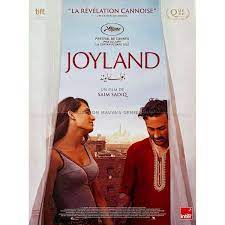
JOYLAND
Pakistan, 2022, 126 minutes, Colour.
Ali Junejo, Rasti Farouq, Alina Khan, Sawat Gilani, Salmaan Peerzada, Sohail Sameer, Ramiz Law.
Directed by Saim Sadiq.
Joyland is an unexpected film from Pakistan, screened with success and awards at Cannes, experiencing censorship problems in Pakistan itself, ultimately released there with some cuts – some surprising episodes even for the main audience, episodes which were probably cut.
There are traditions in various parts of Asia and the Pacific where a trans-person, male to female, is seen as someone sacred. There is something of this background in this film but presented in a far more earthy fashion.
Very strong framework for the film, showing a Pakistani family, the dominating patriarchal presence of the father, his expectation of his two sons, of his two daughters in law, of neighbours. One son is married with several children, his wife pregnant, their hoping for a son. The other son, the focus of the film, Haider, does not have a job, works at home around the house, his wife having a job as a beautician and adviser. Then the patriarch decrees that the son should work, that the wife should stay at home.
The focus then goes on to Haider and his friend getting him a lead to a dancing troupe, backup to a trans-woman, Biba. She has a strong personality, also dominating, sometimes at the mercy of the entrepreneur of a club, sometimes outwitting him, able to dance during a power failure with Haider encouraging her and the patrons, mainly male, shining light with their phones. Haider then becomes very attached to Biba, a sexual encounter which alienates Bibafrom him.
The other part of the plot is the complication about Haider’s wife, her pregnancy, her mental decline, her death and the consequences.
The film draws its audience in, observing the intense life of the family, sometimes sympathetic, sometimes alienated, and also dramatises the world of the trans-dancer, acceptance and non-acceptance.
- The title? Tone? The theme park and its title?
- The reputation of the film, screening in Cannes and winning awards? Banning in Pakistan? Released with cuts? International acclaim?
- The city of Lahore, the atmosphere of Pakistan, urban, neighbourhoods, homes, celebrations, the streets, Joyland and the rollercoaster, the musical score?
- A film about family, patriarchal, the presence of the Father, his dominating, controlling his sons, influence on his daughters-in-law, hopes for grandchildren, boys, presiding at meals, criticisms, especially of Haider? His neighbour and staying the night, her son and his arrival, judgement and condemnation? His 70th birthday, the cake in celebration?
- The next generation, the two boys, the older and his marriage, his wife pregnant, managing the house, cooking, the traditional role? The contrast with Haider, the relationship with Mumtaz, as not working, his duties at home, housekeeping, his father, her having the job, beautician, the preparation for the wedding, the lights going out, everybody holding the torches, her success? The pressure on Haider to have a job, the pressure on Mumtaz to stay home, her reactions? Her sister-in-law and their bonding? But the gradual effect on her, some alienation from Haider, his absences from home, the job? The outing with her sister-in-law and the rollercoaster? The test, her pregnancy, a boy, her reaction, not telling her husband, wanting to leave home, packing, her return? Her decline, her drinking the substance, her death?
- Haider’s story, age, not having a job, at home, his wife at work, the changes situation, his needing a job, his friends? The issue of the theatre, dancing? His hesitations, the encounter with Biba, attracted to her, the rehearsals, his awkwardness, improving, Biba relying on him in times of difficulty, his performance, his persuading her to dance when the lights went out, the audience holding their phones for light? The effect on him, the dancing, with his friends and discussions, homely night late? His father’s reactions?
- The issue of transition in Pakistan, worldwide? Biba, transition to female dancer, the men and their curiosity about her, her reactions? The domination, demands on the manager of the theatre, financial issues, relying on Haider? His attraction, spending time with her, her response? The sexual issue, his taking position, her reaction, ousting him? Issues of his orientation?
- Sequence of the large poster cut out, transporting it, into the house, on the roof, the neighbour seeing it in reporting, the family reaction?
- The death of Mumtaz, everybody gathering, the puzzle, the mystery of her death, pregnancy, the loss of the child? Upsetting the grandfather? Haider and his brother, the interactions, the future?
- The ending with regrets, Haider and his memories, the first encounter with Mumtaz, their bonding, the proposal, the possibilities for a happy future… But not?
Einstein and the Bomb

EINSTEIN AND THE BOMB
UK, 2024, 78 minutes, Colour and Black and white.
Aiden McArdle, Andrew Havill, Helena Westerman, Rachel Barry, Simon Haines, Leo Ashizawa, James Musgrave, Simon Markey.
Directed by Anthony Phillipson.
In world cinema, 2023 was the year of Oppenheimer, the Manhattan Project, the background to the project, Los Alamos, the dropping of the bomb on Hiroshima and Nagasaki. Although a minor presence in Christopher Nolan’s award-winning film, Albert Einstein’s influence is strong, scientists admiring him, the theory of relativity, the splitting of the atom, Einstein’s concern about Germany having nuclear power and his letter to President Roosevelt, but not a at Los Alamos, considered a security risk. He was played by veteran British actor, Tom Conti.
This documentary, in fact, a document-drama, was produced by the BBC studios and distributed by Netflix. Audiences watched it in the aftermath of Oppenheimer. It offers a brief overview of Einstein, as a person, as German, as Jewish, as a scientist and mathematician, his career. For many audiences, this is an opportunity within a brief running time to focus on Einstein and his 20th-century influence. However, quite a number of bloggers expressed great disappointment at the brevity of the film, brief treatment of some issues, especially with the title focusing on the bomb and no mention of the atomic bomb until 20 minutes before the ending of the film. Perhaps they were expecting and Einstein equivalent of Oppenheimer.
A note at the beginning indicates that the spoken and written words attributed to Einstein are all authentic, spoken and written by him.
Important for this kind of documentary is the range of film footage available. And, a great deal is inserted throughout the film, even back to Einstein in his early years, the time of World War I, his science career in the 20s, the crisis in the 30s and his having to leave Hitler’s Germany, his taking refuge in England, his making a transition in sailing to the United States, taking up his position at Princeton. There are only glimpses of his wife in footage and photos. But, there is sufficient footage to build up something of an image of a Einstein himself.
But the film opts for the drama aspect of docudrama, with Irish actor Aiden McArdle playing Einstein – and he had played Einstein also in the 2005 television movie, Einstein’s Big Idea, exploring the background of E=MC2 and the consequences for the splitting of the atom as well as situating Einstein’s exploration in the context of other scientists including Faraday.
McArdle is made up to look like Einstein, short, pudgy, wild hair… The main sequences for the drama focus on Einstein’s leaving Germany in 1933, his being supported by British Parliamentary Commander, Oliver Locker Lampson, staying in the hut in Norfolk, with two female bodyguards who bonded with him. There is a sequence where sculptor Jacob Epstein comes to sculpt his head.
The documentary uses the device of having a date and then tracking backwards or forwards indicating the background to the particular aspect of Einstein’s life or career that is being focused on, scientist discoveries in the 1900s, World War I, American tours, his speech and the Albert Hall affirming his Jewishness, his later life in the US. There are also scenes of Hitler, denunciation by Goebbels, the burning of books, Krysstalnacht…
As regards the bomb, the film devotes 20 minutes to Einstein’s wariness of German developments, his letter to Roosevelt, the aftermath of the bomb, the repercussions on his sensitivities, his work for peace.
Not an equivalent of Oppenheimer but an 80 minutes introduction and overview of the life and work of Einstein.
Thousand and One, A
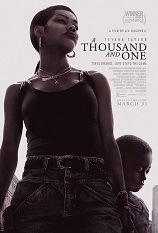
A THOUSAND AND ONE
US, 2023, 117 minutes, Colour.
Teyana Taylor, Aaron Kingsley Adetola, Aven Courtney, Josiah Cross, William Catlett, Terri Abney, Delissa Reynolds, Amelia Workman, Adriane Lennox.
Directed by A.V.Rockwell.
This is a first feature film by A.V.Rockwell who both wrote and directed. She brings a persuasive female sensibility and sensitivity to this film.
There have been many films about African-American children growing up in New York neighbourhoods – Boyz in the Hood. However, this one has a very striking difference. This is not a film about street violence, gangs, criminals and hardships. Rather, it is the story of a mother devoted to her young son, home life, education issues, his maturing into early adulthood.
And, the film boasts a two-to force performance from singer and video performer, Teyana Taylor. She plays the mother, recently released from jail I Rikers Island, her young son in hospital after a fall from the house where he was in foster care. She abducts him from the hospital, the first finding accommodation with friends, then settling down, meeting up with lucky, a friend from the past (William Catlett), marriage, a father for her son, Terry.
Teyana Taylor’s performance is very strong, in the early two in her early 20s in the first section, young, inexperienced in emotions, brash. Later she will look much older, warn, still assertive, dominating. And this is true of the last section, the convincing poor performance of change over the decades.
There are three time faces in the screenplay. It opens in 1994, the prison release, the abduction, setting up the household, very young Terry, quiet, his life before him. His played very persuasively by the young Aaron Kingsley at a taller.
The next time is 2001, but not focusing on 9/11. Rather, Terry has now grown up a bit, early adolescence, friends at school, experimentation with drugs, some silly reactions to his mother, but receiving a lot of support from Lucky. This section is rather brief.
In, 2005. Terry is almost 18, played convincingly by Josiah Cross. There is still the issues of relationship with his mother, the significance of lucky and his influence, his dying of cancer. There are also education issues with one of the local teachers encouraging him to do special exams in the past, qualifying him for higher studies, and the issue of college before him.
But, there is the complication of his falls identity, the false name and documents arranged by his mother long since, his legal situation, his family situation, the relationship with his mother. The issues are not solved by the final credits but there are hopeful indications.
- The title? Children, parents, adoption, abductions…?
- The New York settings, the neighbourhoods in the detail, streets, apartments? Shops? Schools? Hairdressers? The changing neighbourhood, pulling down buildings, ousting tenants…? The political background, the quotations from the various mayors, their commitment to the changes in the city…?
- 1994, 2001, 2005, the look of each era, styles, clothes, technology developments…?
- A drama on African-Americans in neighbourhoods – but family and relationships situations, not a story of violence, gun violence in the streets? In fact, universal stories?
- The opening, Rikers Island, the views, the prison, prisoners leaving? Inez leaving, aged 22, having to make her way? Her personality, assertive, short fuse, determined?
- The episode with Terry, foster care, his falling from the window, his injury, hospital, Inez going to see him, bonding with him, the toys, her taking him?
- Inez, the phone calls, looking for friends, connecting with Kim, her mother hostile, Pea, Terry playing with him, bonding?
- Inez, talent as a hairdresser, the client and her success, finding a job, having to work, accommodation? Setting up?
- Terry and his story, young, quiet, somewhat bewildered, fostering, and happy, with Inez, bonding with her, her demands on him? With Pea and playing?
- Lucky, his background, attraction to Inez, moving in, bonding with Terry? The marriage and the wedding, happiness? Everybody celebrating? Kim and her mother?
- The legal situation, Inez arranging documents, deciding on a false name for Terry, the papers and her hiding them?
- 2001, Terry at 15, Pea at 15, Simone at the diner and the attraction, her reactions to them? Terry, school, clever? Hanging out with Pea? The issue of his intelligence, Miss Tucker and her recommendations, his sitting for the test, discussions with lucky, his achievement? Yet the issue of staying at home?
- Inez in 2001, looking older, more determined, bonding with Terry, yet severe, demanding on him, lucky and his going away, the later revelation of his child and the other woman, Inez inviting them in the funeral?
- Lucky, bonding with Terry, the talking, encouraging him, basketball? Lucky and dinners, the tensions, his frank talking to her?
- 2005, Terry almost 18, his prospects, Lucky, cancer, the hospital, Inez keeping vigil,, the talking, his death, the funeral?
- Inez, older, harder, happy, exasperated?
- Mr Tucker, Terry’s future, wanting the documents, Terry finding them, falls, issues of felony, the social workers, Inez leaving the house, returning talking to Terry, her disappearance?
- Terry, his future, the effect of his upbringing, Inez as mother, Lucky as father, prospects?
